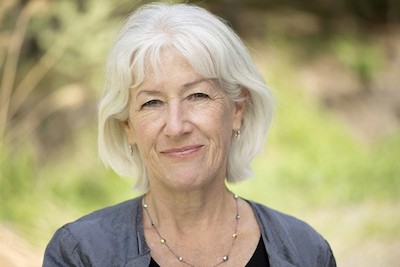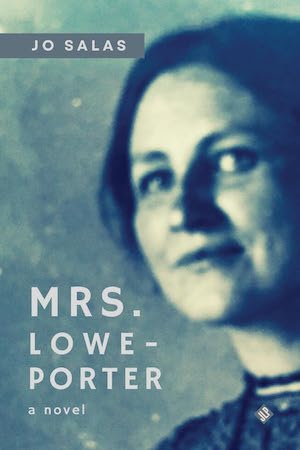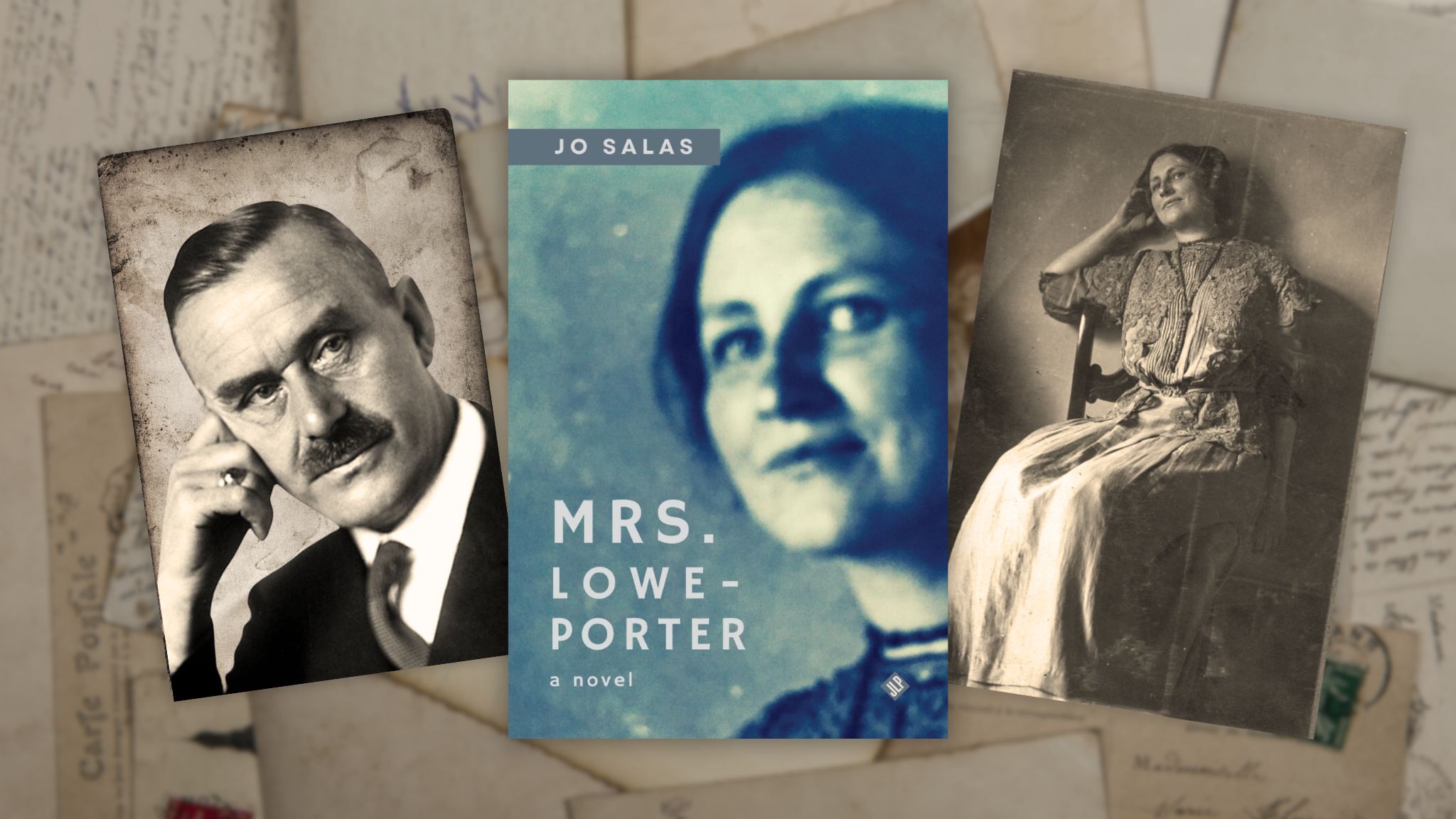Mrs. Lowe-Porter by Jo Salas
Mrs. Lowe-Porter (Jackleg Press) is a captivating biographical novel by award-winning author Jo Salas that blurs the lines between rather bare bones known historical facts and a fictional story adding great emotional depth with richly imagined innermost thoughts and feelings of its subject. This book effectively projects American author and translator Helen Tracy Lowe-Porter (1876-1963) out of two-dimensional source material into vivid life.
Here was an intellectual, brilliant scholar and talented writer with tremendous drive and ambition to pursue an academic career, travel extensively, write and publish novels who relinquished her goals to marry, support her husband in his career and raise their three daughters. Her vocation was literary translation which began a century ago when it was considered a journeyman’s work; relatively unrecognized and following the tradition of ghostwriters of the past, often unidentified. The assignments were poorly paid and hardly proportionate with the demanding work requirements that came with stringent time constraints.
There was minimal gratitude and few if any honors or awards for translators. The first PEN Award was not presented until 1963, the year of her death. The Harold Morton Landon Translation Award began in 1976, followed by the National Translation Award, established in 1998 for poetry and prose and The EBRD Literature Prize for year’s best work of literary fiction translated into English didn’t begin until 2018.
Portrait of a Feminist, Suffragist and Writer
Surrounded by intellectual giants, early feminist and suffragist Helen Lowe-Porter must have chafed bitterly at the compromises she made as an almost invisible helpmate to a charming celebrated husband, Elias Avery Lowe, who insisted on an open marriage (at least on his side of the bed). In 1936, he became one of the first professors at Princeton’s Institute for Advanced Study where he was a colleague and friend of Albert Einstein, continued to lecture at Oxford, and consulted at the Library of Congress and the Carnegie Institution of Washington in his field of expertise, paleography. Paleography is the study and analysis of historical writing systems. He authored voluminous works in this obscure-sounding field involving works in Latin predating the ninth century.
Mrs. Lowe-Porter begins in 1963 shortly before Helen’s death in late April. She is 86 years old and looks back upon her life narrating in first person a lively recounting of her personal history. Her personality shines brightly as Helen muses upon her studies, translation work, her own writings, friendships and the unexpected betrayal from Elias whom she loved so dearly and could never forgive.
Her reflections are interrupted at times by the caring attendants at the upscale assisted living home where she now resides. Her youngest daughter and her beloved grandson are her visitors. There is some mental confusion but she is alert and wise with words both lyrical and profound about the smaller triumphs and disappointments from a life subsumed by responsibilities and the dissatisfaction she would not be remembered for her own work.
It was too late and she was now too old for the second wave of feminism launched with the publication of author and co-founder of NOW Betty Friedan’s seminal work The Feminist Mystique. It is highly unlikely that the real Helen read or even saw this book which debuted two months before she died.
One can assume she would have concurred with what Ms. Friedan wrote: “The only way for a woman, as for a man, to find herself, to know herself as a person, is by creative work of her own.” And, “In almost every professional field, in business and in the arts and sciences, women are still treated as second-class citizens…and a girl should not expect special privileges because of her sex, but neither should she “adjust” to prejudice and discrimination”.
Decades as an English Language Translator
Blanche Knopf, wife of Alfred and co-founder of the Knopf publishing house, following an introduction by H. L. Mencken is credited with signing Thomas Mann during a book-buying expedition to Europe. Subsequently, she hired Helen Lowe-Porter as translator. Blanche remained close to the author and his wife Katia and assisted them in emigrating to America during WWII.
Helen Lowe-Porter, under sole contract with Alfred A. Knopf Publishers, is best known for being the first English language translator for Thomas Mann. While he was already considered a literary giant in Germany he was relatively unknown to English readers. Between the years 1924-1960, she translated virtually all of his published writing comprised of 22 novels, short stories and works of nonfiction. Mann was initially reluctant to have a woman translator but was convinced when Buddenbrooks, first released in Germany in 1901 was published in 1924 in English to great acclaim.
Three years later Der Zauberberg became The Magic Mountain and was also a monumental success. Based on these two works, he received the Nobel Prize for Literature in 1929. Thomas Mann overcame his hesitation and though he pressed her to work faster and rarely praised her or showed appreciation, they did develop a lasting friendship. His affectionate nickname for her was “die Löwe” or The Lion in English.
However, the only mention of her in his books occurs on the title page with her name written as “H.T. Lowe-Porter” and even this small acknowledgment was accidentally omitted in the first printing of Death in Venice. Her painstaking, meticulous work undoubtedly assisted tremendously in bringing him international renown.
Close Work with Albert Einstein
Mrs. Lowe-Porter also translated various papers for Albert Einstein with whom she enjoyed a relaxed and jovial relationship. Of course, she knew him more intimately as a near neighbor and through his close association with her husband Elias. She additionally worked with several other German authors as well as translated works written in Latin, French, Italian and Dutch into English.
Although her own writing ambitions were hobbled by her marriage, children and work as a translator, she did leave behind the play Abdication, written in blank verse, performed for a short run in Dublin’s Gate Theatre in 1948; a slender volume of poetry, Casual Verse, published by Knopf in 1957, as well as numerous letters. An unpublished novel known to have been shown to Thomas Mann was never found among her effects. She firmly believed in women’s rights, was opposed to war, political oppression under fascism and the McCarthy era anti-communism witch-hunt which prompted Thomas and Katia Mann to leave the USA permanently in 1952 for Switzerland.
German is unlike romance languages French, Italian, Spanish, Portuguese or Romanian which delight the ear and lyrically, musically slide off the tongue and onto the page. Difficult to master, German sounds are harsh and guttural with those pesky face-scrunching umlauts, multiple compound words and a bumper car pile-up of verbs ending sentences.
One quickly learns all nouns are capitalized and have genders which precede them; masculine, feminine or neuter yet they may not make sense. Why is das Mädchen, a girl, neuter? Why are motorcycle brands feminine? Don’t confuse Der Lama (the Dalai Lama) with das Lama (a llama). Genders are written in small case unless they refer to a title or begin a sentence. Pronouns require declensions; there are four cases, six tenses and a large vocabulary.
Helen Lowe-Porter’s work made the genius of Thomas Mann available to the English-speaking world despite the bitter resentment that lingered from Germany’s participation in WWI and WWII and the horrific crimes of the Nazi Regime.
Written by an Expert Author With Family Ties
Novelist and social activist Jo Salas was the perfect author for Mrs. Lowe-Porter if for no other reason than the fact of their kinship by marriage. The author met her grandson Jonathan Fox three years after his grandmother Helen died and later, married him. Thus, she has been a part of the extended family for nearly 60 years with ample opportunity to have intimate informative conversations with all of them throughout the years.
She assisted Jonathan’s mother Patricia Lowe Fox with her research and writing of the unfinished, unpublished joint biography of both of her parents which helped inspire this brilliant novel. As a footnote: Boris Johnson, the former Prime Minister of England, is the grandson of Elias Avery Lowe and Helen Lowe-Porter, although born long after their deaths.
Jo Salas has included an extensive bibliography including sources of the real Helen’s quotations taken from letters or published works as spoken by the fictional character. Another significant reference was a collection of The Unpublished Correspondence of Thomas Mann, Alfred A. Knopf and H.T. Lowe-Porter.
With Mrs. Lowe-Porter, Jo Salas has achieved the writing triumph that her never-met but vividly imagined grandmother-in-law hoped to write. She has fully validated this “hidden figure” and honored her with a magnificent literary achievement. This reviewer was completely enraptured by this novel and would love to read more by this author. If a biopic were ever made of this fascinating woman, Cate Blanchett would be perfect for the role!
 Jo Salas is a writer, a social activist, and devoted grandmother. She grew up in New Zealand and now lives two hours north of New York City near woods and mountains. Jo’s fiction includes the novels Dancing With Diana (Codhill Press, 2015), and Mrs. Lowe-Porter (JackLeg Press, 2024). Her short stories have appeared in literary journals and anthologies. Her story “After,” in the anthology Facing the Change: Personal Encounters With Global Warming was nominated for the Pushcart Prize. Other short stories have won or been shortlisted for awards.
Jo Salas is a writer, a social activist, and devoted grandmother. She grew up in New Zealand and now lives two hours north of New York City near woods and mountains. Jo’s fiction includes the novels Dancing With Diana (Codhill Press, 2015), and Mrs. Lowe-Porter (JackLeg Press, 2024). Her short stories have appeared in literary journals and anthologies. Her story “After,” in the anthology Facing the Change: Personal Encounters With Global Warming was nominated for the Pushcart Prize. Other short stories have won or been shortlisted for awards.
Jo is also the cofounder of Playback Theatre, an original form of interactive theatre based on personal stories now practiced worldwide. Her nonfiction writing has chronicled and explored Playback Theatre since its inception, with many publications including Improvising Real Life: Personal Story in Playback Theatre, now published in ten translations and a 20th anniversary edition.
You can write to Jo at josalas5566@gmail.com.





